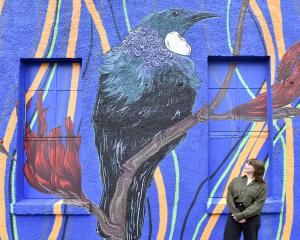A decline in volunteer numbers and jobs sufficiently large to fund its activities, coupled with rising compliance costs and theft of equipment, had caused its demise.
Founding member and current committee member Bill Dwyer (82) summed up his feelings about the group's end by gesturing with a thumbs-down.
"One year we bought new diamond-shaped signs, it was maybe 10 minutes and they were gone,'' he said.
"We later found what was left in the bottom of the Leith.
"We realised we couldn't keep pace with this with the so few events we are getting.
"It was decided, with our ailing bodies and difficulties in keeping up the maintenance costs and the lack of sufficient volunteers coming in, it was time to let it go.''
It brought him great sadness, as he had been involved with the group since its formation in 1967.
Another long-time member and secretary-treasurer Arthur Driver said increasing compliance costs had also provided problems for the group.
The group's swansong would be the Hurricane Rodders midwinter run display in the Octagon today.
Its last annual meeting would follow later this month and a final meeting to finalise the disbandment would be held next month.
President Bernessa Tomkinson was also upset about the end.
"It's sad that a 49-year-old group is having to close because there aren't enough volunteers,'' she said.
The group peaked at about 180 members in 1980, but numbers had dwindled since and only 10 active members remained at present.
Despite the sadness that surrounded its end, the committee members held positive memories of the group's past.
"It's been fun, it really has,'' Miss Tomkinson said.
"We have got to give credit to all those who have ever turned up and been out there,'' Mr Dwyer added.
"There's been a lot of people involved with the club and dedicated to it.''
It started as the Otago CB Radio Club and offered assistance to emergency services, but as the use of CB radios diminished, the group moved into traffic management and had been involved in many city events, such as New Year's Eve celebrations and traffic management of the city when cruise ships were in port.
It had also managed events elsewhere in Otago.
At its peak the group was involved in more than 100 events a year.











